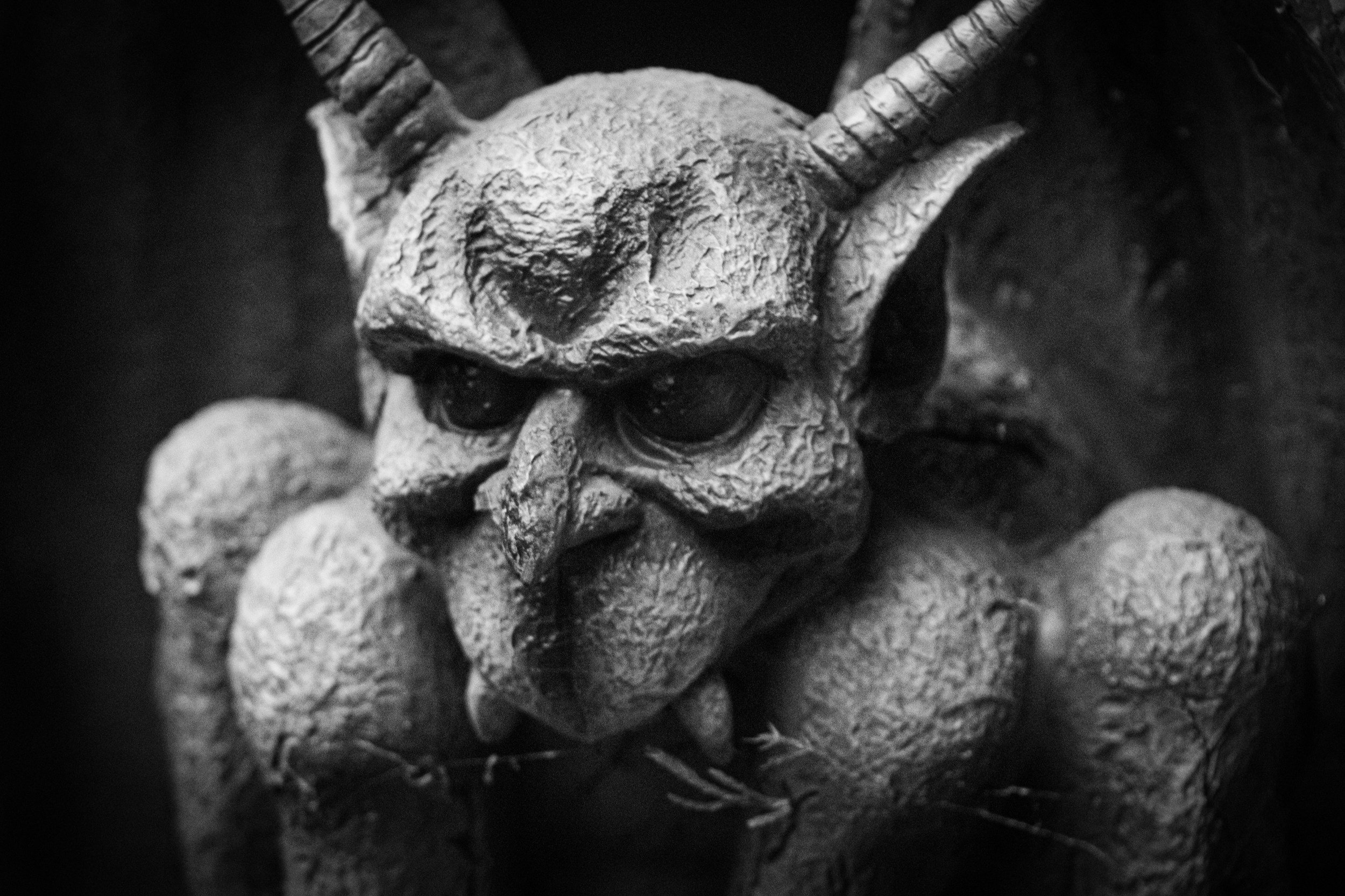Grendel Storms The Mead Hall
Somewhere between 1000 and 1400 (ish) years ago, somebody penned the epic poem “Beowulf”, and in the process, brought forth one of the most impressive and complex antagonists to ever darken the page. Grendel is a strange being who spends his time alone, seething in a swamp. At some point in the poem, he slinks out of his soggy abode, makes his way over to a local kingdom (that happens to be celebrating), and shreds pretty much every creature he can find. He straight-up decimates the party goers, leaving bits and pieces of them hanging from the rafters like party streamers.
And what, those of you who’ve never had to tackle this marathon-length composition might ask, crawled up Grendel’s tush and made him so unabashedly homicidal? We don’t get a lot of details about him, but he is described as a “walker in anger” and “lacking in joy”. Readers at the time were dependent on their communities for survival and protection. Their lives, though far from idyllic, would have revolved around the sharing of labour and resources. They would have readily grasped what a terror it was to have a stranger waltz in unannounced.
What makes Grendel so fascinating as a bad guy, even to a 21st century reader is that he loathes others. The thought of humans having connection or comradery, that they would share and support one another, renders him incensed. “We” is not part of his reality. When it comes to community, unity, loyalty, and collaboration, he simply just can’t. He just can’t to the extent that he goes Freddie Kruger on any civilized humans who happen to be nice to one another.
Grendel can’t take it. Empathy, togetherness, altruism, decency are indigestible. They don’t compute. He can’t exist in the same space as anything humane. He has to turn it all into hamburger and dance around in the oversplash.
Beowulf does have a happy (albeit gory) ending. The hero, who happens to have experience in slaying nasty beasts, swings in and saves the day. Grendel drags his unrepentant, greedy guts back to the swamp and perishes, minus one severed arm, which is displayed by the victor as a trophy. The remaining population of the kingdom rejoices and recommence their feasts and revels. At the time, that’s what good kingdoms did- they had each other’s backs and toasted one another with flagons of fermented beverages.
You see where I’m going with this, right, even if you’ve never cracked the spine on a copy of Beowulf? Grendel has returned to the mead hall, good people, and it’s about to get messy. We weren’t exactly in a state of bliss as a kingdom to begin with, but it’s getting worse. All of the things that the miserable swamp creature represents- division, separation, rage, inhumanity, greed, they’re oozing through the door. We’re letting it happen. We’re encouraging it to happen. We’re voting for it, paying for it, teaching it to our kids, sacrificing ourselves to it.
Over a thousand years ago, in circumstances radically different from our own, somebody knew and saw this coming, and wrote about it at length. Probably lots of somebodies saw and knew about this. They were on the lookout for Grendel and the like, and they knew that he could potentially be their undoing. They were by no means saints (have humans ever been?), but they understood that the world was a merciless, harsh place, and that there was strength in sticking together, in practicing intolerance of the intolerant.
So, where is our hero? Who’s going to swoop in, shiny weapons in hand, and chop our demons into tiny bits? Ummm…that’s us.
The good news is being a hero at this juncture doesn’t require fancy swordplay or a CV loaded with dragon slaying. It’s not all on the shoulders of one brave soul with a bit of death wish. It’s not an all-at-once type of affair either. Heroism can (hopefully will) happen in small bits, by a whole bunch of unsuspecting people, over long periods of time. We can swear allegiance to our fellow kingdom dwellers by doing simple things like protecting public health, buying local and/or used, and supporting grassroots organizations. We can stave off the awful by being a fan of the arts, teaching classes at a community centre, or organizing an online chat. We can call out hate and exclusion where we see it.
In many tiny steps, we can build a bigger “mead hall”, and make sure it’s got a door that is sufficient to keep out the nasties. We can do whatever small things we can do to see ourselves as part of “us”. It won’t be as dramatic or satisfying as sending the beast back to the muck without a limb, but it will be equally epic.
